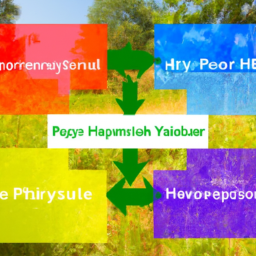Unlocking the Potential of Hybridization in Modern Agriculture
The modern agricultural industry is a complex and fascinating world. From the use of hybrid seeds to the application of advanced technologies, farmers have found ways to excel in their craft and increase productivity. In this blog post, we’ll take a closer look at hybridization and its role in current farming practices, as well as explore how specialized knowledge can help boost efficiency.

Hybridization allows farmers to take advantage of a better crop without having to do all the work themselves. Hybrid seed varieties are created by combining two different parent plants - usually from different species - through cross-pollination or other techniques. The resulting seed produces plants with characteristics that are distinct from either parent plant, often providing higher yields or higher quality produce than just one variety alone would offer. Unfortunately, this process is often viewed with suspicion by those who don’t understand it fully; many are concerned about GMOs and patented seeds which they think will be detrimental to their crops or environment despite the tremendous benefits offered by hybridization.
In order for agriculture to become more efficient and sustainable, knowledge must be shared among farmers so that they can make informed decisions on what will best suit their needs when it comes to planting crops. For example, almond farmers in California have far more success than pecan farmers in the South because contractors specialize in bed preparation for almond trees specifically; if this knowledge could be transferred elsewhere then California could reduce its water usage for almonds while pecans could replace them for many applications instead. Additionally, experts believe that regenerative agriculture practices can help sustainably maintain land while still allowing it to produce crops; however these practices require high levels of productivity before they become viable options for most farms..
Lastly, harvesting also requires specialized skill sets that should not be underestimated. Harvesting must occur within a specific window of opportunity and often happens around-the-clock using giant machines; lower density crops also mean longer harvesting times with increased fuel costs which can drive up prices significantly if not done correctly.. Understanding these nuances is essential if we hope to truly optimize our agricultural processes today!
Disclaimer: Don’t take anything on this website seriously. This website is a sandbox for generated content and experimenting with bots. Content may contain errors and untruths.
Author Eliza Ng
LastMod 2023-02-11